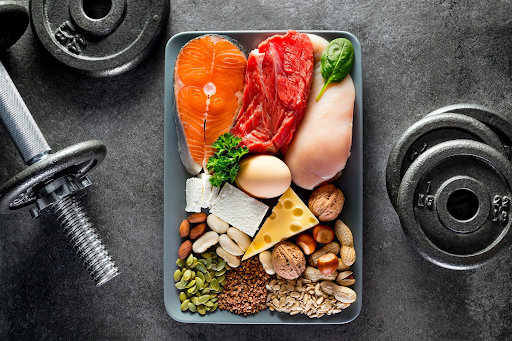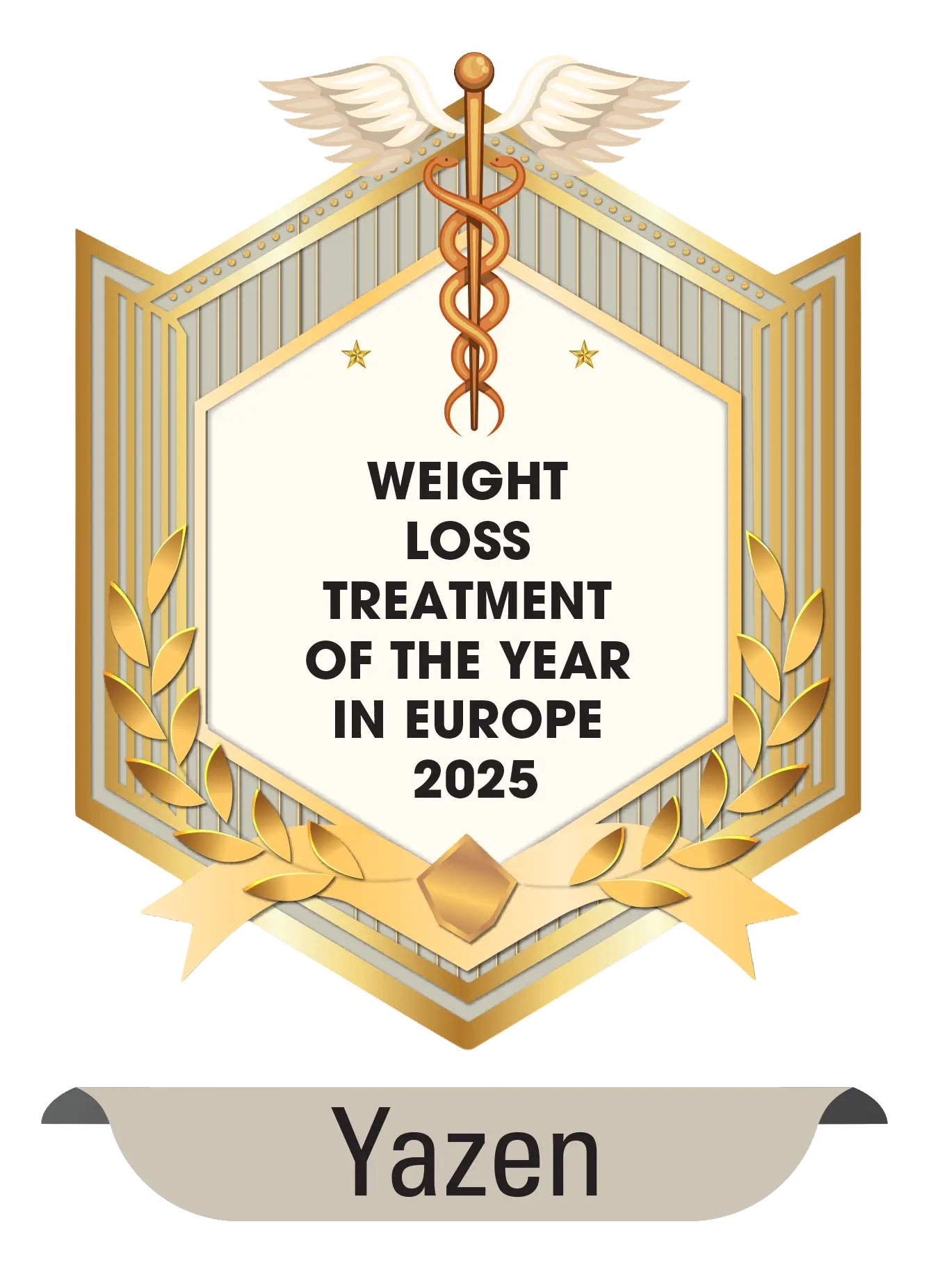Does protein timing matter for building muscle?
It’s a common claim that you need to consume protein immediately after training to build muscle. But is that really true?

The body’s building blocks
Protein is one of the body’s most important nutrients and serves as a building block for muscles, skin, and hair. It also plays a key role in several vital functions, such as the production of hormones and enzymes, as well as supporting the immune system.
Protein consists of long chains of amino acids – like beads on a string. There are 20 different amino acids, nine of which are known as essential, meaning they must be obtained through the diet because the body cannot produce them on its own.
How much protein per kilogram of body weight do you need per day?
The amount of protein you need each day varies depending on factors such as body weight, age, activity level, and overall diet. The recommended daily intake (RDI) is about 0.8 grams of protein per kilogram of body weight per day to cover the body’s basic needs (1). This should be seen as the minimum amount needed to avoid deficiency – not the exact amount you should aim for every day.
There is a difference between basic needs and optimal intake. If you train regularly or are trying to lose weight, your needs may be significantly higher. In cases of obesity, and especially during substantial weight loss, a higher protein intake can be important both for maintaining satiety and for preserving muscle mass (fat-free mass).
Can a high protein intake affect kidney function?
There used to be concern that a high protein intake could damage the kidneys. When protein is broken down in the body, waste products are formed that must be filtered out by the kidneys, and it was thought that a protein-rich diet might overload kidney function.
However, newer research shows that this concern is largely unfounded. In people without kidney disease, there is no evidence that a high-protein diet causes kidney damage or impairs kidney function (2,3).
Protein-rich foods
Almost all foods contain some protein, but the amount varies depending on the type of food. Here are some examples of particularly protein-rich foods that can help you build muscle:
- Chicken, turkey, and other lean meats
- Fish and seafood
- Eggs
- Low-fat dairy products such as quark, 0% Greek yoghurt, cottage cheese, and reduced-fat cheese
- Legumes: lentils, beans, chickpeas
- Soy-based products such as tofu, tempeh, and soy mince
Protein quality and muscle building
The difference between animal and plant protein
The quality of a protein is determined by how much of the essential amino acids it contains. A protein that provides all the essential amino acids in sufficient amounts is called a complete protein and is considered high-quality. Animal-based foods such as meat, chicken, fish, eggs, and dairy products are examples of complete protein sources.
Plant-based foods, with the exception of soy, contain smaller amounts of one or more essential amino acids and are therefore considered incomplete proteins. This is rarely a problem if you eat a varied diet throughout the day, as amino acids from different foods – such as legumes and grains – can complement each other. This does not need to happen in the same meal. By eating a balanced mix of protein-rich foods, root vegetables, and nutrient-dense grains such as wholegrains, you’ll get all the essential amino acids your body needs.
Collagen for muscles – does it really work?
Collagen and gelatin are examples of proteins often promoted in supplements as “muscle-supporting,” but their actual effect on muscle growth is very limited. These proteins have a low protein quality because they lack several essential amino acids, meaning the body struggles to use them for building or repairing muscle tissue (4).
Although collagen doesn’t do much for muscles, it still plays an important role in the body. It acts as a kind of scaffolding that holds together the skin, cartilage, and connective tissue, helping these structures maintain their strength and elasticity. However, if your goal is to increase muscle mass, there are far better protein sources to focus on.
What is protein timing?
Protein timing — that is, the timing of protein intake — has long been a topic of discussion in strength training and nutrition. It was once believed that you achieved the best results from strength training if you consumed protein immediately after your workout, during the so-called “anabolic window” – a period when the body was thought to be particularly receptive to muscle building.
However, newer research shows that this window is much longer than previously thought. Instead of being a short period directly after training, studies suggest that the body remains particularly responsive to protein intake for several hours — up to a full day — after a workout (5).
This means that protein timing matters less than once believed. The key factor for maintaining and building muscle mass is the total protein intake over time. In other words, you can consume protein whenever it suits you best during the day, rather than feeling compelled to do so immediately after exercise.
A large review of more than 20 studies (6) supports this conclusion. While people who consumed protein around their workouts did show slightly better results, these differences disappeared when researchers accounted for total daily protein intake. It wasn’t when protein was consumed that made the difference — it was how much protein was eaten in total per kilogram of body weight.
Meal frequency
Eating regularly has several benefits — it helps you recognise your body’s natural hunger and satiety signals, making it easier to avoid snacking and make more mindful food choices. Regular meals also contribute to steadier energy levels and help you feel more alert throughout the day.
How many meals you eat per day, or at what times, is not the most important factor. Some people feel good eating three main meals a day, while others benefit from adding one or more snacks to avoid feeling overly tired, hungry, or craving sweets. A good meal structure isn’t about strict rules but about balance — finding an eating pattern that fits your lifestyle and daily rhythm.
Training, recovery, and balance
While protein is important for muscle growth, training — especially strength training — is absolutely essential. To stimulate muscle growth, you need to challenge your muscles beyond their usual workload by gradually increasing resistance and varying exercises, sets, and repetitions. As you get stronger, the load should continue to increase to allow for progression.
A good rule of thumb is to train the entire body at least twice a week, with enough sets and adequate rest between sessions.
By combining regular strength training, sufficient rest, a nutrient-rich diet that provides enough protein each day, and quality sleep, you create the best possible conditions for your body to recover and build muscle effectively.
Summary
Research shows that protein timing plays a smaller role in building muscle than previously believed. Sustainable muscle growth depends on more than just protein intake per kilogram of body weight — it also requires regular strength training, enough sleep, and proper recovery, all of which are key for building muscle and supporting good overall health.
References
- European Food Safety Authority (EFSA) Panel on Dietetic Products, Nutrition and Allergies (NDA) (2012). Scientific opinion on dietary reference values for protein, EFSA Journal, 10(2): 2557. https://doi.org/10.2903/j.efsa.2012.2557 [27 oktober 20225].
- Martin, W.F., Armstrong, L.E. & Rodriguez, N.R. (2005) Dietary protein intake and renal function. Nutrition & Metabolism (London), 2(25).
- Campbell, B., Kreider, R.B., Ziegenfuss, T., La Bounty, P., Roberts, M., Burke, D., Landis, J., Lopez, H. & Antonio, J. (2007) International Society of Sports Nutrition position stand: protein and exercise. Journal of the International Society of Sports Nutrition, 4(8).
- Phillips S.M. (2017). Current concepts and unresolved questions in dietary protein requirements and supplements in adults. Frontiers in Nutrition, 4, p.13.
- Antonio J. et al. (2024). Common questions and misconceptions about protein supplementation: what does the scientific evidence really show? Journal of the International Society of Sports Nutrition, 21(1), p.2341903.
- Schoenfeld B.J., Aragon A.A. & Krieger J.W. (2013). The effect of protein timing on muscle strength and hypertrophy: a meta-analysis. Journal of the International Society of Sports Nutrition, 10, Article 53.

October 28, 2025
November 28, 2025
Start your weight loss journey with Yazen today
Everything you need to do is to create an account and answer some questions about your health
.svg)
.svg)
More articles
Diets for weight loss – which ones work best and offer sustainable results?
The keto diet, the 5:2 method, Paleo, LCHF and intermittent fasting – these are just a few examples of popular diets that often promise solutions to your health problems and claim to be the optimal path to rapid weight loss. But how well do they actually work – and, more importantly, how sustainable are they in the long term?
In this article, we at Yazen explore how different diets work, why many people find that they’re difficult to maintain over time, and what might be a more sustainable approach to achieving your goals.




.svg)

















